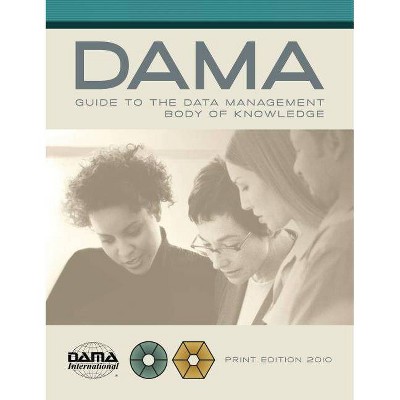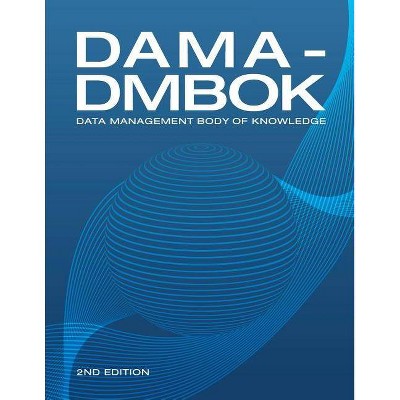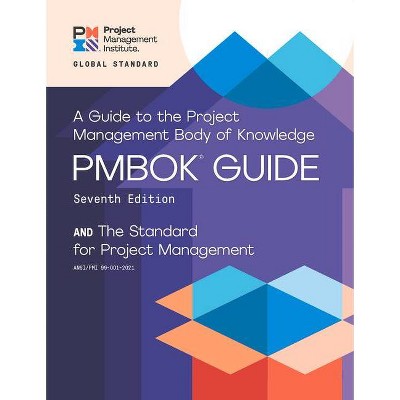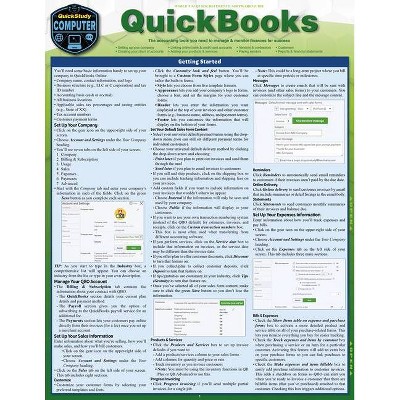The DAMA Guide to the Data Management Body of Knowledge (DAMA-DMBOK) - by Dama International (Paperback)

Similar Products
Products of same category from the store
AllProduct info
<p/><br></br><p><b> About the Book </b></p></br></br>Written by over 120 data management practitioners, the DAMA Guide to the Data Management Body of Knowledge (DAMA-DMBOK) is the most impressive compilation of data management principals and best practices, ever assembled.<p/><br></br><p><b> Book Synopsis </b></p></br></br><p><strong>Written by over 120 data management practitioners, the DAMA Guide to the Data Management Body of Knowledge (DAMA-DMBOK) is the most impressive compilation of data management principals and best practices, ever assembled. It provides data management and IT professionals, executives, knowledge workers, educators, and researchers with a framework to manage their data and mature their information infrastructure. </strong></p><p><strong>The equivalent of the PMBOK or the BABOK, the DAMA-DMBOK provides information on: </strong></p><p><strong>-Data Governance </strong></p><p><strong>-Data Architecture Management </strong></p><p><strong>-Data Development</strong></p><p><strong>-Database Operations Management</strong></p><p><strong>-Data Security Management </strong></p><p><strong>-Reference & Master Data Management</strong></p><p><strong>-Data Warehousing & Business Intelligence Management</strong></p><p><strong>-Document & Content Management </strong></p><p><strong>-Meta Data Management </strong></p><p><strong>-Data Quality Management</strong></p><p><strong>-Professional Development</strong></p><p><strong>As an authoritative introduction to data management, the goals of the DAMA-DMBOK Guide are: -To build consensus for a generally applicable view of data management functions. </strong></p><p><strong>-To provide standard definitions for commonly used data management functions, deliverables, roles, and other terminology. </strong></p><p><strong>-To document guiding principles for data management. </strong></p><p><strong>-To present a vendor-neutral overview to commonly accepted good practices, widely adopted methods and techniques, and significant alternative approaches. </strong></p><p><strong>-To clarify the scope and boundaries of data management. </strong></p><p><strong>-To act as a reference which guides readers to additional resources for further understanding.</strong></p>
Price History
Price Archive shows prices from various stores, lets you see history and find the cheapest. There is no actual sale on the website. For all support, inquiry and suggestion messages communication@pricearchive.us




















